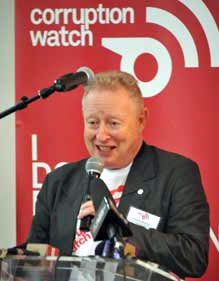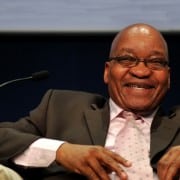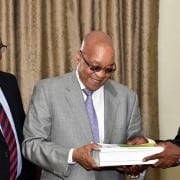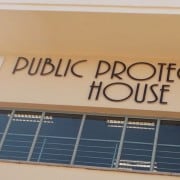|
Getting your Trinity Audio player ready...
|
 By David Lewis
By David Lewis
We at Corruption Watch are often asked whether we don’t find our job depressing. The question assumes that spending each day dealing with the seamier side of human conduct and confronting an insoluble problem must be a depressing experience.
It’s not at all depressing. On the contrary, it is quite uplifting.
First, while we do, indeed, encounter plenty of villains, we also come across a diverse collection of heroes. These range from the public protector to the public official who blows the whistle on somebody more powerful, to the mother who refuses to accept that her child’s life chances should be compromised by a corrupt teacher. Each of these, from the most to the least powerful, confronts personal risks, but personal integrity and a sense of community compel them in a direction we all find inspiring and affirming.
Second, while corruption is indeed insoluble if we think in terms of eliminating it, I am convinced that if our aim is to significantly reduce its incidence, then we have a real chance of emerging on the winning side. And there is already evidence that bears this out.
The environment surrounding corruption has changed dramatically in the past couple of years. Important legislation and regulations have been passed; every elected official feels it necessary to establish his anti-corruption credentials; anti-corruption compliance programmes are an increasingly common feature of large companies; important anti-corruption agencies such as the Special Investigating Unit are showing signs of life.
The public is rightfully cynical of the corrupt officials or CEOs who publicly proclaim their commitment to fighting corruption while privately condoning or even engaging in it. But in so proclaiming, they are in effect setting higher standards against which they can be judged and in which, if their deeds do not match their words, they will be found wanting. This is how change happens in a democracy.
What gives hope for the sustainability of these advances is that they are all rooted in our democracy. That is, they are the product of public pressure, and are lent additional weight by court decisions and, in some instances, parliamentary action. Public outrage at the Dina Pules has dramatically changed the ethical codes that govern elected officials; public support for the public protector has neutered the ability of the ruling party to do anything but froth impotently; public pressure will limit the ability of any party to oppose the regulation of its funding; public condemnation will see justice done over Nkandla.
This is not to underestimate the scale of the corruption problems we face. I’m convinced the related issues of impunity in the highest reaches of government and corruption in our criminal justice system are the root causes of escalating corruption. They are related because the only constraint on those who are not ashamed, and thereby constrained, at being named, is criminal sanction. And because of this, those who have reason to fear criminal sanction will do all in their power to ensure a politically compliant police command and prosecutorial service.
We have a president, Cabinet ministers and provincial and city leaders who have never put to rest the corruption allegations swirling around them. The need to prevent the authorities and, indeed, the public, from acting on these allegations explains the necessity to maintain compromised leadership in the police, the National Prosecuting Authority (NPA) and the SABC. Why appoint someone as compromised as Mxolisi Nxasana to head the NPA if not to have some past deeds to use against him should he act independently? Why retain someone as palpably unsuitable as Richard Mdluli as head of police crime intelligence if it were not for the support that this position could lend to those who fear punishment? Why hang on to the likes of Hlaudi Motsoeneng at the SABC if you have nothing to fear from public opinion?
Public pressure and help will come from unlikely places. I would be surprised if there were no Cabinet ministers who recoiled at the idea of insisting that a swimming pool was a fire-fighting device, just as there are mid-level public servants who are sick and tired of taking a bullet for their errant superiors. There are honest police officers who are humiliated by having Mdluli in their ranks, just as I know there are SABC journalists who want to be rid of Motsoeneng. People get the elected representatives and governments they deserve. Tolerate corruption and that’s what you’ll get.
• David Lewis is executive director of Corruption Watch









